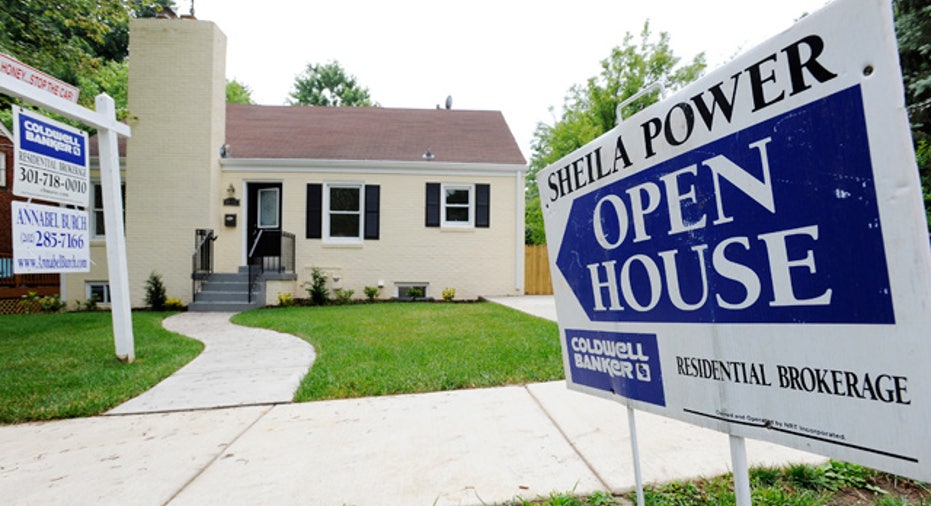Housing Recovery Begins When Foreclosures Turn To Closings

Before anyone starts talking about a housing recovery, the conversation needs to shift from foreclosures to closings.
For months, the only good news out of the relentlessly stagnant U.S. housing market has been reports that foreclosures are slowing. On Thursday, for instance, RealtyTrac reported that foreclosure filings in May fell for the eighth straight month and are down 33% from a year ago.
But that was inevitable given the fact that there is a finite number of homes in America and record numbers of foreclosures were filed in 2009 and 2010 as homeowners struggled to pay their mortgages during the worst of the recent financial crisis.
Simply put, it was almost statistically impossible for the number of foreclosures to keep rising. The numbers eventually had to go down so theres really nothing positive to glean from these figures.
Barry Bramlett, president of Equity Depot LLC, which compiles real estate data in Georgia, compared the steady decline in foreclosures to an army that on each successive day of a battle loses fewer soldiers.
You start out with a large number of soldiers and on the first day of battle a large number are lost. The next day there are fewer soldiers to lose so fewer are lost, and so on and so on, he said.
A battle with lots of casualties seems an apt metaphor for the current housing market. And there doesnt seem to be any end in sight for this war.
Last week Ara Hovnanian, CEO of the giant homebuilder Hovnanian Enterprises (NYSE: HOV), sought during a conference call with analysts to ease concerns that the prolonged housing slump was taking a heavy toll on his business. He said at one point, We remain confident that we have the liquidity to weather the remainder of this downturn, and will continue to position ourselves in preparation for the inevitable housing recovery.
But when is inevitable? No one seems to know.
Jay Butler, an associate professor of real estate at Arizona State University, said it all depends on your definition of recovery.
According to Butler, for many Americans recovery will mean that their mortgages are no longer underwater, an increasingly common predicament in which homeowners have seen the value of their homes fall so much that they owe more than their home is worth.
Underwater mortgages have been cited as a primary reason so many homeowners have defaulted on their loans, forcing foreclosure. The thought being, why continue to make monthly payments on a $400,000 mortgage when the house is now worth only $300,000?
Underwater mortgages have also cut into the housing market because homeowners who owe more than their homes are worth cant sell without incurring significant losses.
Butler said that, for others, the key to a recovery will be when the housing market is driven by owner-occupants, not foreclosed properties.
Typically, when one thinks of housing the main theme is people wanting to buy a place for their family. Now, foreclosures are the dominant force, he said.
Butler said recovery could be many years down the line in hard hit areas of the country such as Phoenix. In less beleaguered regions such as Texas, perhaps not as long, he said.
There are many obstacles that need to be overcome, some of them specific to the industry itself as the pendulum has swung sharply from the lax lending standards of a decade ago to a markedly different lending environment today.
Now, potential homeowners face increasingly tougher loan-qualification guidelines, lower limits on U.S. Federal Housing Administration-backed mortgages and higher down-payment requirements.
While a common-sense approach to lending might have avoided the catastrophic fallout from last decades housing bubble, the sharp turn in the other direction is now acting as an impediment to lifting the housing market out of its doldrums.
The rest of the economy isnt helping either.
Its been two-and-a-half years and were still heading down, said Steve Palm, president of Smart Numbers, an Atlanta-based real estate data firm.
That trajectory isnt expected to change if unemployment continues to hover above 9%. Housing will not lead us out of this thing, said Palm. Weve got to get businesses to start hiring.
A significantly reduced unemployment rate is widely seen as the lone economic index that could single-handedly affect the housing market. But in lieu of that unlikely scenario it will take jumps in a range of housing-related data points -- sale closings, homes under contract, building permits, etc. -- before anyone is convinced the housing market is turning around.
Bramlett said none of those numbers is likely to move higher while a huge glut of housing inventory remains.
Nothing is going to change while theres that glut, he said. Until that changes I dont see anything driving any prices upward."
But jobs are the key. High unemployment bleeds across all sectors of the economy and has impacted housing in particular.
Said Bramlett: There is no mobility right now, people arent moving for jobs. It used to be that when you got a better job you got a better house. Now no one is getting that better job so they're not moving into that better house. Its unchartered territory at the moment."



















